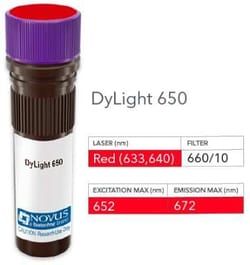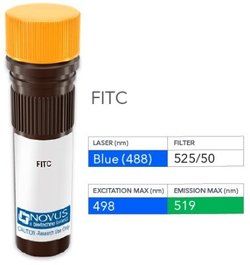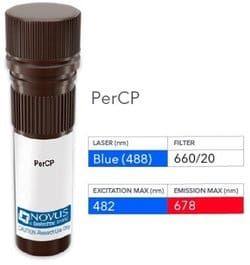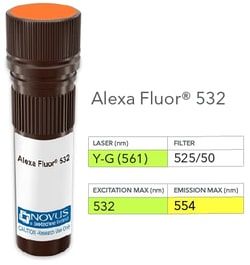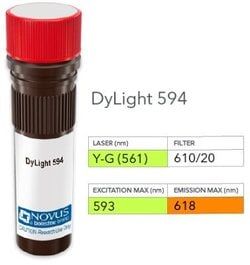CD3 Antibody (KT3), Alexa Fluor™ 488, Novus Biologicals™
Manufacturer: Novus Biologicals
Select a Size
| Pack Size | SKU | Availability | Price |
|---|---|---|---|
| Each of 1 | NB10064871X-Each-of-1 | In Stock | ₹ 56,426.00 |
NB10064871X - Each of 1
In Stock
Quantity
1
Base Price: ₹ 56,426.00
GST (18%): ₹ 10,156.68
Total Price: ₹ 66,582.68
Antigen
CD3
Classification
Monoclonal
Conjugate
Alexa Fluor 488
Formulation
50mM Sodium Borate with 0.05% Sodium Azide
Gene Symbols
CD3
Immunogen
CBAT6 thymocytes
Purification Method
Protein G purified
Regulatory Status
RUO
Primary or Secondary
Primary
Test Specificity
The antibody recognizes mouse CD3 antigen.
Content And Storage
Store at 4C in the dark.
Isotype
IgG2a
Applications
Flow Cytometry, Immunohistochemistry, Immunohistochemistry (Frozen)
Clone
KT3
Dilution
Flow Cytometry, Immunohistochemistry, Immunohistochemistry-Frozen
Gene Alias
CD3 antigen, delta subunit, CD3d antigen, CD3d antigen, delta polypeptide (TiT3 complex), CD3d molecule, delta (CD3-TCR complex), CD3-DELTA, CD3e antigen, CD3e antigen, epsilon polypeptide (TiT3 complex), CD3e molecule, epsilon (CD3-TCR complex), CD3-epsilon, CD3G, CD3g antigen, CD3g antigen, gamma polypeptide (TiT3 complex), CD3g molecule, epsilon (CD3-TCR complex), CD3g molecule, gamma (CD3-TCR complex), CD3-GAMMA, FLJ17620, FLJ17664, FLJ18683, FLJ79544, FLJ94613, MGC138597, T3DOKT3, delta chain, T3E, T-cell antigen receptor complex, epsilon subunit of T3, T-cell receptor T3 delta chain, T-cell surface antigen T3/Leu-4 epsilon chain, T-cell surface glycoprotein CD3 delta chain, T-cell surface glycoprotein CD3 epsilon chain, TCRE
Host Species
Rat
Molecular Weight of Antigen
21.4 kDa
Quantity
0.125 mL
Research Discipline
Adaptive Immunity, Apoptosis, Autoimmune Diseases, Diabetes Research, Immunology, Inflammation, Innate Immunity, Signal Transduction, Stem Cells
Gene ID (Entrez)
916
Target Species
Mouse
Form
Purified
Description
- CD3 Monoclonal specifically detects CD3 in Mouse samples
- It is validated for Flow Cytometry, Immunohistochemistry, Immunohistochemistry-Frozen, Product Image.

